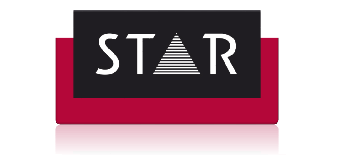We store all your translations in our Translation Memory System. This creates our translation memory database, which is a store of all your translations. Transit stores every line of translation as our translators work, storing all your translation so you can reuse phrases and paragraphs again. This means that you never have to pay full price to translate the same text again. This delivers consistent economical translation. Typically, we see clients saving between 15% to 40% on translation costs over time. Secondly, you benefit from consistent translation quality. This ensures that you use the same terminology in all documents, thus maintaining overall translation quality and your brand image.
When you consider the potential economies from reusing text across documents, updates and file formats, the savings in terms of overall cost of translation per word are clear.
How do we define words?
There are three types of word pricing as follows.
- New Word Rate
- Fuzzy Word Rate
- Perfect Match Rate
- 1. New Word
- A new word or sentence of text that has not been previously translated. You pay full price for this type of translation.
- 2. Fuzzy Word
- This is text that is similar to some previously translated text.
An example of a fuzzy word translation would be…
- To open the driver door, ‘please pull the handle down and out‘
- To open the passenger door, ‘please pull the offside handle down and out‘
or another example:
- to install version 7.0 of the device driver ‘Click OK to continue‘
- to install version 5.0 of the external device driver ‘Select OK to continue‘
Fuzzy sentences do not require as much translation, but need to be proofed to ensure consistency.
We charge approximately 66% of the full word price for fuzzy matches.
- 3. Perfect matches
- When we analyze a document, we can find two types of repeated strings.
Types of repeated strings:
- A string that has been translated in a previous document
- A string that is repeated in the current document
Examples are items such as title headers or common phrases such as ‘Click OK to continue’. We recommend that all pre-translated text should be proofread in context to ensure document consistency. You pay just approximately 33% of the full word cost for this.
How long does it take to translate a document?
Our translators average approximately 1,500 words per day. Based on having a single translator working on a project, the turnaround time would be (total number of words / 1,500) + 2 days for project management and proofreading. We translate all languages at the same time, so translating into more than one language does not take any longer.
Why do I need proofreading?
Proofreading is a key part of the quality process. When a translator works on a project, it is only human that errors may occur. As part of our internal quality process, we employ a second person, who is a professional translator and proofreader, to review all your translated text for quality. This additional quality gate allows us to a) verify the quality and interpretation of the translation so that it is correct, and b) check the style of the translation to ensure that it matches all your other documentation. Proofing always has to be done by a second person to get a single overall quality picture of your documents.
What if I need it faster?
Should you require the document in a faster turnaround time we can accommodate your requirements, for example by putting more than one translator on a project. You should call your Account Manager to discuss this.
Why STAR?
STAR is Europe’s largest privately-held translation company. We have been specialists in the technical translation sector for 20 years. We employ over 900 staff worldwide in 44 global offices. All your translations are done in-country by native speakers specialising in your industry sector. So you get the best quality, industry translations for each of your target markets.
Additional Services
STAR also provides DTP services for all leading file formats. DTP is charged on a per page or hourly basis depending on the project.
Why do I need DTP?
This is a common query. All languages have different styles and constructs, so what you can say in 5 words in English might take only 2 words in German but up to 10 in French. German sentences can be up to 30% longer than their English equivalents. This can mean that after your document has been translated its layout may have changed. Your designed layout text may overflow onto a new paragraph or page, which can result in the document having to be reworked before you can print it.
We recommend that when clients create original documentation they should leave at least 20% white space around all text to ensure ease of translation.
Can I do the DTP myself?
Some customers prefer to do the final touch-up DTP work themselves. For major European languages like French, German and Italian, most good designers have a few rudimentary words of the language and can resize text and do the layout themselves. We are happy if clients want to do this. The challenge comes when you have to work on languages such as Arabic, Chinese, Korean and Hebrew, which are complex languages to DTP. In this case, if you do not have a native speaker in house, it will be much easier to have STAR do this work for you.
Additional Technology Benefits
We also provide technology tools for terminology management, translation work flow and document quality control. As your relationship with STAR develops and your translation knowledge and experience grow, you can discuss these areas with your Account Manager.


